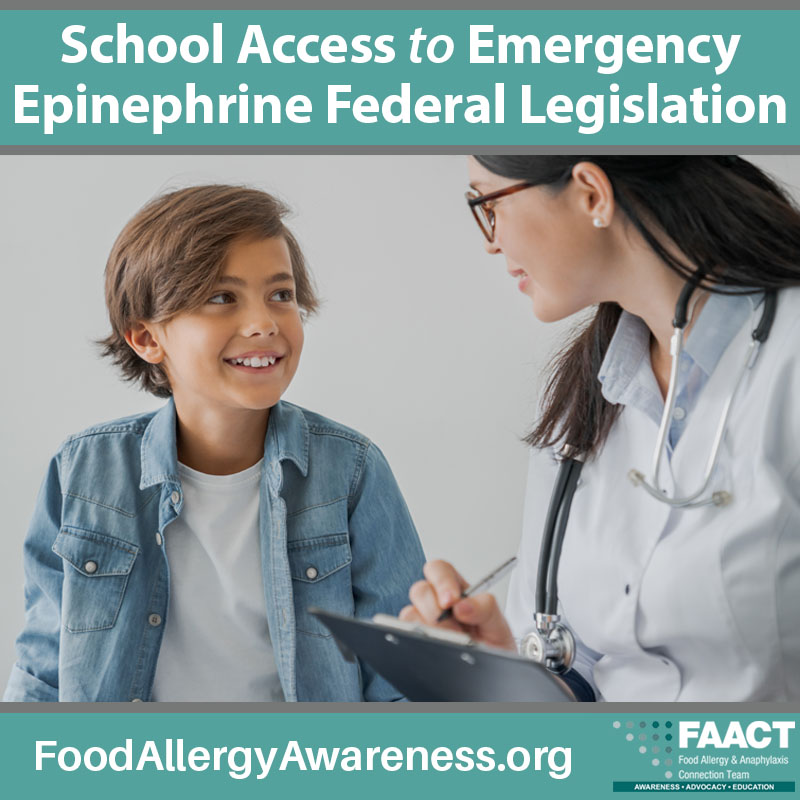Government Relations

School Access to Emergency Epinephrine Federal Legislation
The School Access to Emergency Epinephrine Act, signed into law on November 13, 2013 by President Obama, encourages states to adopt laws requiring schools to have “stock” epinephrine auto-injectors for use by any student.
This legislation will help save the lives of students who experience a serious immune response known as anaphylaxis and do not have a prescribed epinephrine auto-injector at school. It will also protect any student whose epinephrine auto-injector isn’t available during a life-threatening, anaphylactic reaction.
Food allergies continue to be a growing health issue, especially among young children. Approximately 32 million people in the United States have food allergies, including 6 million children. These children spend much of their days in school, where they may be exposed to food allergens that can trigger anaphylaxis.
The Federal legislation provides financial incentives for states to enact their own laws requiring school personnel to keep and administer a non-student specific epinephrine auto-injector in case of an emergency.
FAACT Wants to Help Your State
FAACT will advocate for state legislation mandating that every school have a supply of emergency “stock” epinephrine auto-injectors on hand, in every school.
The following states have passed mandated legislation:
- California
- Connecticut
- Delaware
- Maryland
- Michigan
- Nebraska
- New Jersey
- North Carolina
- Nevada
- Utah
- Virginia
Arizona is the 12th mandated state with a caveat based on annual statewide budget allowance.
In all other states, it varies from district to district, or even from school to school, as guidelines to stock epinephrine are voluntary.
Visit Allergy & Asthma Network (December 2021) to view the U.S. map of the states with laws requiring anaphylaxis emergency preparedness plans that permit schools to stock emergency supplies of epinephrine auto-injectors.
Help make this a requirement in YOUR state, and Contact Us.